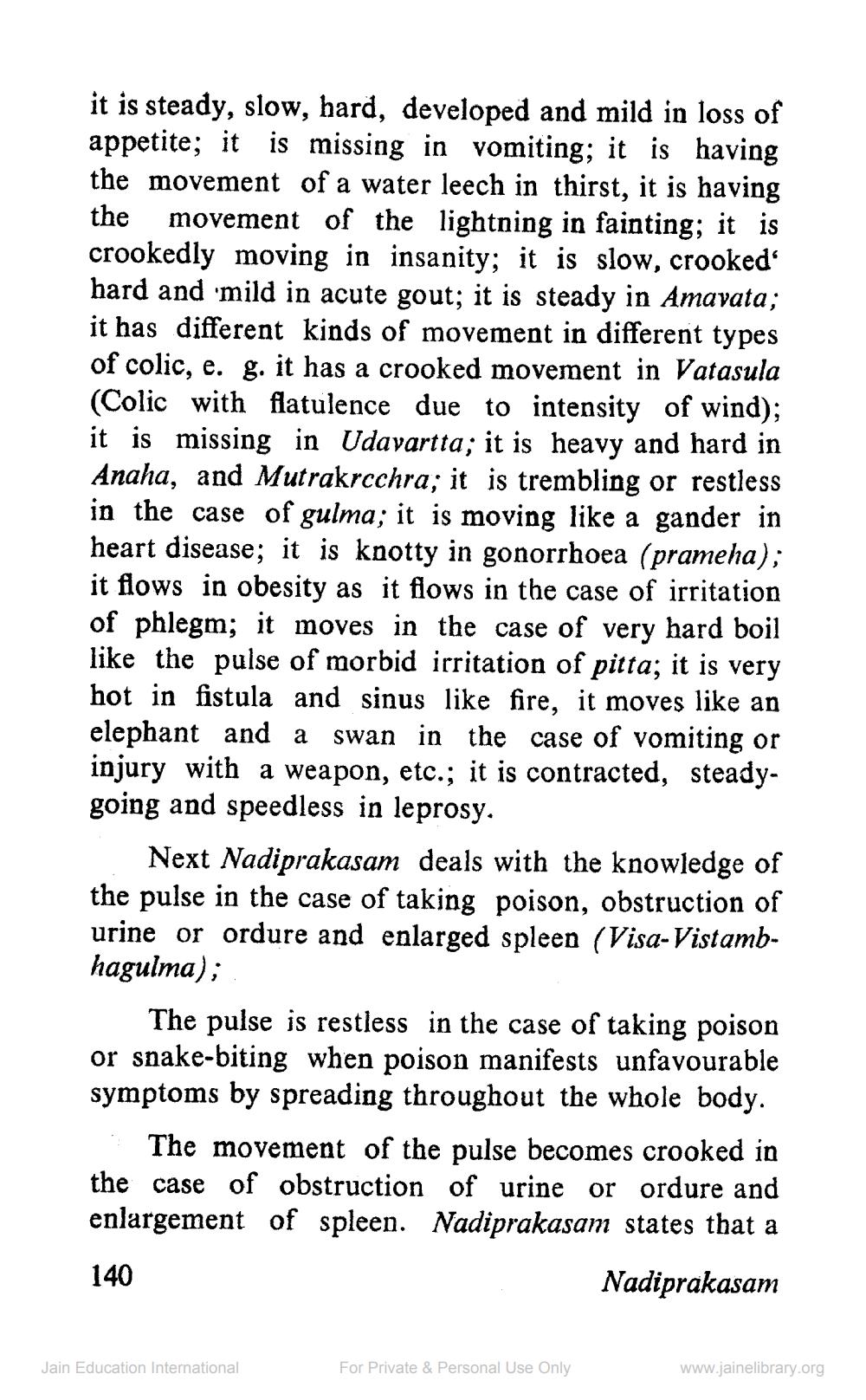________________
it is steady, slow, hard, developed and mild in loss of appetite; it is missing in vomiting; it is having the movement of a water leech in thirst, it is having the movement of the lightning in fainting; it is crookedly moving in insanity; it is slow, crooked' hard and 'mild in acute gout; it is steady in Amavata; it has different kinds of movement in different types of colic, e. g. it has a crooked movement in Vatasula (Colic with flatulence due to intensity of wind); it is missing in Udavartta; it is heavy and hard in Anaha, and Mutrakrcchra; it is trembling or restless in the case of gulma; it is moving like a gander in heart disease; it is knotty in gonorrhoea (prameha); it flows in obesity as it flows in the case of irritation of phlegm; it moves in the case of very hard boil like the pulse of morbid irritation of pitta; it is very hot in fistula and sinus like fire, it moves like an elephant and a swan in the case of vomiting or injury with a weapon, etc.; it is contracted, steadygoing and speedless in leprosy.
Next Nadiprakasam deals with the knowledge of the pulse in the case of taking poison, obstruction of urine or ordure and enlarged spleen (Visa-Vistambhagulma);
The pulse is restless in the case of taking poison or snake-biting when poison manifests unfavourable symptoms by spreading throughout the whole body.
The movement of the pulse becomes crooked in the case of obstruction of urine or ordure and enlargement of spleen. Nadiprakasam states that a
140
Nadiprakasam
Jain Education International
For Private & Personal Use Only
www.jainelibrary.org




